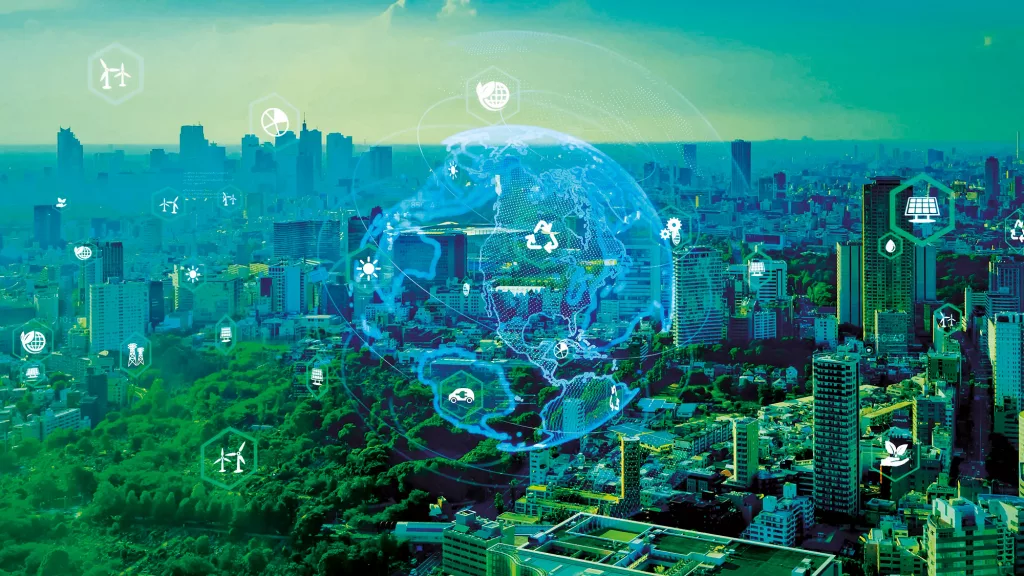The Rise and Rise of ESG, from Investment and Worker Safety to the Ethics of the Defence Industry
‘Immediate actions — necessary to mitigate losses from catastrophic events like the war in Ukraine and the pandemic — should be distinguished from the steps that are necessary to preserve a company’s long-term value.’
In April 2013, the concrete roof of a dilapidated factory collapsed in Dhaka, Bangladesh, killing 1,134 people — mainly female garment workers — and injuring 2,500.

Many of them had been producing clothing for international fashion brands — including Benetton, Primark, Walmart, Prada and Gucci — which turned the calamity into a global embarrassment. Just a few years earlier, the United Nations had instituted its Environmental, Social and Governance (ESG) principles. The human cost of the Dhaka tragedy highlighted the urgent need for global business to take safety aims seriously.
The rapid growth of Bangladeshi “sweatshops” over the previous decade — in response to Western consumer demand — had led to overcrowded, badly maintained factories and poor working conditions. The average wage for garment workers at the time was around $30 a month. Pope Francis denounced the system as slave labour.
The Dhaka tragedy had another consequence: Western consumers began to realise the link between the fashionable clothes sold in glitzy stores and the grim reality of their origins. The stark images of death and destruction in Bangladesh had investors questioning the ethical practices of many business and industry sectors.
Australian James Gifford was the executive director of the UN’s Principles of Responsible Investment at the time. He had been a “shareholder activist” in his native Australia for some years and was among the group of free thinkers who shaped ESG strategies in the early 2000s. “It is absolutely in the financial interests of leading Western clothing brands to have safe factories and not to have scandals,” he said. “We’re now seeing all the clothing brands scrambling to sign-up to new protocols on building safety.
“This is the change that the world is seeing. Formerly, people thought there must be a trade-off between profits and looking after workers or looking after the environment.” Companies, he said, needed to look after supply chains. Transparency in that area is just one of the issues being tackled by global business. Investor and consumer knowledge, and the power of social media, have put every industry in the spotlight. ESG aims are now part of the business mainstream in Europe and the US.
“The disruption to global trade caused by the pandemic failed to interrupt the progress of ESG.”
The disruption to global trade caused by the pandemic failed to interrupt the progress of ESG. Amy S Matsuo, regulatory and ESG insights leader at KMPG US, says that far from provoking an investor flight back to traditional investment, the crisis amplified awareness in investors, policymakers and consumers.
“Pressure from investors, employees, customers and the general public has driven companies to commit to and act upon an ESG strategy,” she said, “focusing primarily on environmental factors. With the advent of Covid-19, stakeholders are turning attention to workplace safety, employee health and wellbeing, job security, data privacy, customer engagement, supply chain management, community investment, corporate leadership and innovation. ESG has expanded into a ‘main street’ issue, with significant reputational risk for companies.”
Gifford, now head of Impact Advisory and Thought Leadership at Credit Suisse, said there was growing recognition that the world was changing. Many of the most important changes are within the
ESG bracket, he said. “Change is opportunity, and ESG issues — being some of the largest, most important megatrends happening in society — simply translate into opportunities for the cutting-edge of investors to outperform their peers.”
The pandemic, followed by Russia’s invasion of Ukraine in February, had investors rattled. In times of crisis, investors historically tend to play safe, seeking out reliable havens for their money — usually gold or government bonds. But companies with strong ESG polices generally outperform those with less environmental and social awareness. A 2020 study of ESG investments showed that 60 percent achieved positive returns, and only eight percent were negative.
The growth of ESG adoption since the term was coined in 2004 shows no sign of wilting in the face of economic challenge. Companies which demonstrate a belief in sustainability and ethical standards are judged to be more trustworthy. Research by Morgan Stanley’s Institute for Sustainable Investing found that sustainable funds offer reduced risk — whatever the asset type. The analysis suggests that non-ESG funds have a greater downside deviation in volatile markets.
Gifford says sophisticated analysis by investors is growing. It is no longer just about picking out “the bad guys” from an investment portfolio, or investing in obviously green areas such as wind farms or solar power. It’s about seeking out companies with the potential to make the world a better place.
“Investors want to focus on what the boards of major corporations are actually doing, what they’re thinking about, what’s keeping them up at night,” he said. “With this radical transparency, with social media, with the accountability that corporations are feeling, all of these issues are becoming core to business, and core to those investing.”
The war in Ukraine has raised questions over the perceived rigidity of ESG principles — particularly in relation to the defence industry. Arms manufacturers have seen a degree of investor flight in recent decades, and the sector is seen by many as running counter to ESG aims. In March, a Bank of America report said that the Ukraine crisis “reminds us that, like most things in investing, ESG is complicated and nuanced”.
The conflict has led some to question whether investing in a strong defence industry should be considered fundamentally “social” in deterring regime aggression. An opinion piece in The Financial Times in March questioned the blanket approach of ESG aspirations; the effects of war on Europe’s doorstep illustrated the crucial nature of defence, it argued. “Surely an important component of (Europe’s) ability to provide safety and security to its citizens should qualify for some recognition in the social element of ESG?”
Similarly, in response to the increasing cost of energy — especially in a Europe so dependent on Russian oil and gas — there have been calls to soften climate-change priorities.
But Adam O Emmerich, a partner at US law firm Wachtell, Lipton, Rosen & Katz, says that while ESG investing is fundamentally about generating long-term financial value, the Ukraine conflict has prompted unprecedented support for the liberal international order. “The war provides important lessons,” he said, “and underscores the need for a non-disruptive transition to a low-carbon world — a view already shared by major investors.
“If unaddressed, climate change will trigger a humanitarian crisis on an unprecedented scale and lead to trillions of Dollars in losses. From an ESG perspective, a company’s performance is still being measured in returns delivered over decades and not days.
“Immediate actions — necessary to mitigate losses from catastrophic events like the war in Ukraine and the pandemic — should be distinguished from the steps that are necessary to preserve a company’s long-term value.”
By Tony Lennox
You may have an interest in also reading…
On Freeters and Other Exotic Creatures in a Land of Plenty
The sustainability of Japan’s society is in doubt for various reasons, writes Wim Romeijn. China, Europe, and even the United
IMF Statement on Cyprus
Statement on Cyprus by Olli Rehn, European Commission Vice-President and Christine Lagarde, Managing Director of the International Monetary Fund. The
Investing in a Future that has Never Seemed Brighter — a True Pioneer Bank in Mongolia
Staying true to its values and aims has taken Golomt Bank to enviable heights. Golomt Bank was established on 1995


















































































